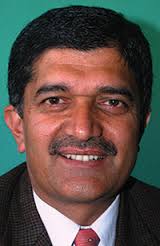
Dr. Hari Lamsal is the joint secretary of Education Ministry and expert on taxation. Edukhabar.com talked with Dr. Lamsal on how can the authority provided to local bodies for overseeing secondary level education be made economically viable?
Question: The constitution has entrusted local bodies the authority to oversee secondary education. It requires economic resources to implement the provision. How do you see the economic challenges?
Ans: The local bodies or the local government will have their own budget. How much priority the local government will give on education is a crucial issue. The local government will collect taxes on their own. They will also receive grants from the provincial and the federal governments. This will be one of the sources for financing education. The provincial and federal governments can also conduct special type of programmes. The local government can ask guardians to provide financial aid or pay donations for education. Apart from three major sources, different service taxation can be imposed and invested in education. The more is the amount of such income, the easier will it be for local bodies to design their own education related programmes.
Question: Local governments have announced different policies on taxation. How can that be invested in education?
Ans: Increasing tax would add burden to people but taxation is crucial for generating income for local governments and the country as a whole. The law provides authority to local bodies for imposing taxation. The income should be used not only to finance education but also other affairs. The existing taxation can incorporate the component of education too, which is also under public discourse. But, that will also have an impact on public. People with low income are already seeking additional support from the government. If there is no additional income and only the tax net is increased, such population would face additional burden. A basket fund can be created with that income and used in education. The allocation based on resources in local bodies is a crucial issue. How much amount can be collected and how much will be allocated on individual sectors? If we impose education tax in one hand and slash the budget from the central fund, it will not deliver tangible results. All such income can also be kept in a single fund and allocated for education. Increasing tax net would result more money but add burden to poor people. If we don't increase tax, there is the possibility of low budget in areas like health and education. Therefore, the main focus should be how to increase income sources of local bodies, how to increase income and purchasing power of public and enhance the production. This will ensure greater income and also open avenues for expanding tax net. If our production remains the same and we just increase the taxation, I don't think it will give a solution.
Question: What can the local government do to increase taxation and ensure greater investment in education?
Ans: In order to increase taxation, we need to look into how we can enhance income and expenditure capacity of public. The production should grow and diversify the income opportunities should expand among others. For example, if a certain area has good potential for vegetable farming, it should be provided assistance for more production. If the vegetables produced from there can be sold, then the purchasing power of people would be strong. If we can link the taxation and purchasing power of pubic, then the state can make more money. Only focusing on increasing tax will not give a solution. Therefore, the major focus should be on production, income, areas in local level that can bring benefits among others. In some areas, tourism can have greater potential while in others agriculture and biodiversity can be the source of income. Similarly, livestock farming, poultry and agriculture can be other areas. We need to find other similar sources of income which eventually will enhance the purchasing power of people. Then, we can increase revenue generation and make more investment in education.
प्रतिक्रिया